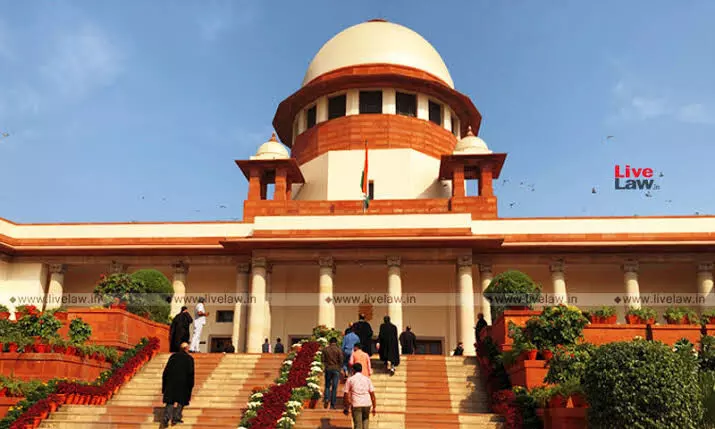
SC, ST quota: Supreme Court puts burden on state to collect data on representation
text_fieldsNew Delhi: The Supreme Court has declined to interfere in collecting data regarding representation of the SC/ST communities in government jobs, stating that it was the duty of states to collect data on the inadequacy of representation of backward castes.
The Supreme Court bench headed by Justices Nageswara Rao, Sanjiv Khanna and B R Gavai refused to lay down the yardstick for the collection of quantifiable data, but said that it was mandatory to have some, apart from assessment of inadequacy of representation after a periodic review is done. The review period should be determined by the Central government, it said.
The bench added that a 'cadre' should be the unit of assessment and not the entire service. "Cadre, which should be the unit for collection of quantifiable data in relation to promotional posts, would be meaningless if data pertaining to the representation of SC/STs is with reference to the entire service," it observed.
The court, however, noted that the "collection of information on inadequacy of representation of SC/ST communities cannot be with reference to the entire service or class/group, but should be relatable to the grade/category of posts to which the promotion is sought."
The issue pertains to upholding of the Nagaraj Judgement which laid down the basis of promotions for SC/ST officials in government service. Chief Justice Deepak Mishra upheld the 2006 verdict upholding reservation in promotions and the application of 'creamy layer' concept to SC/STs. However Jarnail Singh modified the Nagaraj judgment to the extent that State need not produce quantifiable data to prove the "backwardness" of a Scheduled Caste/Scheduled Tribe community in order to provide quota in promotion in public employment.
The five-judge Bench judgment in the Jarnail Singh case in 2018 had given a huge fillip to the government's efforts to provide "accelerated promotion with consequential seniority" for Scheduled Castes/ Scheduled Tribes (SC/ST) members in government services.
However, a series of petitions has besieged the apex court with regard to ambiguities created by the judgement as well as promotions which were largely stalled due to some lack of clarity.
Attorney General K.K. Venugopal had argued in favour of reservation in promotion, saying that even 75 years of Independence has not been able to bring members of the Scheduled Castes and Scheduled Tribes on par with the forward classes of society. Mr. Venugopal had said that it was still tough for a member of the SC/ST to reach the 'Group A' category jobs.
On Friday, Justice Rao said the court has not expressed any opinion regarding the merits of the individual cases before it, and had answered the "common issues" formulated in the issue. Individual petitions would be listed for February 24, with priority given to petitions by the Central government.























